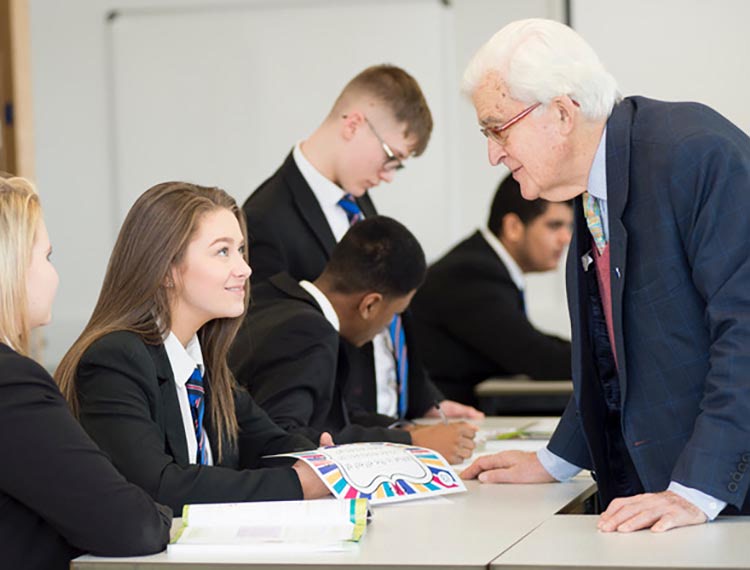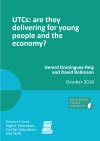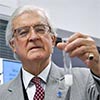UTCs: are they delivering for young people and the economy? Sector Response to EPI Report

 A new report published today (11 Oct) by the Education Policy Institute (EPI) undertakes a detailed analysis of the provision and performance of University Technical Colleges (UTC), before examining whether UTCs are providing necessary skills for local and national economies.
A new report published today (11 Oct) by the Education Policy Institute (EPI) undertakes a detailed analysis of the provision and performance of University Technical Colleges (UTC), before examining whether UTCs are providing necessary skills for local and national economies.
In response to EPI’s Report “UTCs: are they delivering for young people and the economy?“

Lord Baker, Chairman of The Baker Dearing Educational Trust said:
“EPI start with their conclusion that a 14-18 institution cannot fit into an 11-18 system and then use statistics to support that. It is a pity that they did not take up Baker Dearing’s offer to visit several of our 50 UTCs and speak to teachers, students and parents. It compares a UTC to a normal school. UTCs are not normal, they are a new hybrid and do not follow Progress 8 and EBacc as the Government acknowledges – UTCs have a curriculum of 40% technical and 60% academic.
“Scant regard is given to the destinations data of UTCs. For the last three years UTCs have recorded an unemployment rate at 18 of between 1-2% – virtually no NEETs -producing at 16 and 18 young people ready for the world of work. The Government’s published level of NEETs at 18 is 8%.
“EPI ignored evidence Baker Dearing sent to them of the previous education record of 4,000 students before they joined a UTC. This shows that 6.8% of our students had been excluded against a national figure of 0.17%, and the Home School educated rate is 3.6% against the national average of 0.5%. This illustrates how challenging a UTC intake is and Baker Dearing is proud that UTCs transform their students’ life chances.
“A student in Toxteth in a mainstream school has an 11% chance of going on to university – the Liverpool Life Sciences UTC, on the borders of Toxteth, has 30 students from Toxteth and 86% of those went to university. UTCs are agents for social mobility.
“It takes 4-5 years to fill each UTC and some UTCs are now oversubscribed.”
 Stephen Lambert, Newcastle City Councillor and former FE lecturer, said:
Stephen Lambert, Newcastle City Councillor and former FE lecturer, said:
“According to research by Robin Simmons of Huddersfield University 808,000 young adults aged 16 to 24 are NEET – not in education, employment or training. This figure has started to rise again with more young men experiencing NEET than women.
UTCs have failed to fire, proper investment in colleges is needed, AoC urges. Julian Gravatt, Deputy Chief Executive, Association of Colleges, said:
“University Technical Colleges are an experiment that hasn’t worked. The Education Policy Institute’s report shows in some detail that most UTCs underperform in terms of both under and over 16-year-olds. Given the high level of support given to them by DfE and the capital funding allocated by the Treasury, this is obviously disappointing.
“In response to these findings, EPI recommend a major change of purpose for UTCs. They say that recruitment at 14 should end and that they should specialise in Level 3 technical education for 16-to-18-year-olds. This needs careful thought before going ahead. Some UTCs already offer high-quality technical courses but the 16-to-18 sector of education is already a chaotic and underfunded market.
“Colleges have worked effectively with DfE to rationalise and improve their provision via the area review process and are now preparing for the technical education reforms. What is needed now is not an unplanned addition of new institutions but proper funding and a dose of planning.”
A Department for Education spokesperson said:
“We have a diverse education system and University Technical Colleges are an important part of that, with the best providers teaching people the skills and knowledge that will help them secure good jobs in specialist technical sectors.
“Our most recent data shows that when young people leave a UTC they are headed in the right direction – with twice as many Key Stage 4 students beginning an apprenticeship compared to the national average. At Key Stage 5, this figure is three times as high as pupils from other state-funded schools.”











Responses